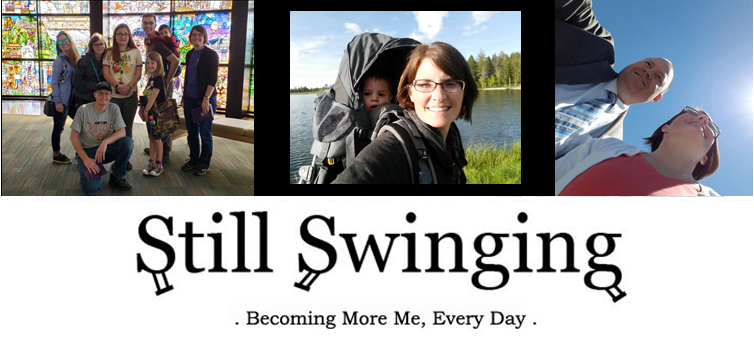In "The Living Christ," the first line mentions Jesus' "matchless life" and the last line states "God be thanked for the matchless gift of His divine son." When we look at that "matchless life," we can see just what a "matchless gift" He was. No other person could have performed the atonement. No other person could have broken the bands of death to begin resurrection. No other person could live as perfectly as He did. No other person's teachings have had such a "profound an influence upon all who have lived and will yet live upon the earth" (also from "the Living Christ").
Looking at the Christmas story, if I could trade places with any part in it, I would want to be a shepherd. Think about it. Herod didn't get an angelic visit because he probably wouldn't have believed or followed it (think Laman and Lemuel), so he had to have some rich guys similar to his station come to tell him about the birth. And then, instead of seeing it as a blessing, he saw it as a threat.
Simeon had been told he would see the Christ before he died, and the moment he saw him he knew and testified. Anna wasn't told she would see the Christ (that we know of), but she also knew and testified of him as soon as she saw him. Maybe I should be happy to be like them, but I still want to be a shepherd.
When they come into the story they were doing the work they were supposed to be doing. Luke 2:8 - "And there were in the same country shepherds abiding in the field, keeping watch over their flock by night." When the Savior comes again, I hope I might also be at work, keeping watching over whatever "flock" I may have at that point.
Then they get to see an angel! Luke 2:9-12 - "And, lo, the angel of the Lord came upon them, and the glory of the Lord shone round about them: and they were sore afraid. And the angel said unto them, Fear not: for, behold, I bring you good tidings of great joy, which shall be to all people. For unto you is born this day in the city of David a Saviour, which is Christ the Lord. And this shall be a sign unto you; Ye shall find the babe wrapped in swaddling clothes, lying in a manger."
Then the heavenly choir comes. Luke 2:13-14 - "And suddenly there was with the angel a multitude of the heavenly host praising God, and saying, Glory to God in the highest, and on earth peace, good will toward men." That has to be one incredible song, rejoicing in the birth of the Savior of the world. I imagine it to be something like unto the music in Handel's Messiah, and as a matter of fact Handel wrote a song in the Messiah with those words, but I don't believe that man could capture the joy and beauty of the original. I hope to hear it myself someday.
Regarding the words to that song, "the best way to get peace is by a personal obedience to the Prince of Peace" (Sterling Sill), which would include men giving good will toward one another. Again, we have been given that "matchless gift." If we don't strive to follow him, those blessings the angels sang about will never be.
Back to the shepherds. Luke 2:15-16 - And it came to pass, as the angels were gone away from them into heaven, the shepherds said one to another, Let us now go even unto Bethlehem, and see this thing which is come to pass, which the Lord hath made known unto us. And they came with haste, and found Mary, and Joseph, and the babe lying in a manger." On top of everything else, the shepherds get to see Mary, Joseph, and the baby.
And after all, the testify of what they had seen and heard. Luke 2:17 - "And when they had seen it, they made known abroad the saying which was told them concerning this child." Another great pattern to follow.
In Doctrine and Covenants 46:8 we are told to “seek … earnestly the best gifts, always remembering for what they are given," and verse 26 states, "And all these gifts come from God, for the benefit of the children of God.” Those verses normally refer to spiritual gifts, but the Savior is also a spiritual gift, right? We should also "seek" after Him, remember why He was given to us, and do all this knowing it will benefit us personally.
A few other paragraphs from "The Living Christ:" "We solemnly testify that His life, which is central to all human history, neither began in Bethlehem nor concluded on Calvary. He was the Firstborn of the Father, the Only Begotten Son in the flesh, the Redeemer of the world."
"Of the Living Christ, the Prophet Joseph wrote: 'And now, after the many testimonies which have been given of him, this is the testimony, last of all, which we give of him: That he lives!'"
"He is the light, the life, and the hope of the world. His way is the path that leads to happiness in this life and eternal life in the world to come. God be thanked for the matchless gift of His divine Son."
